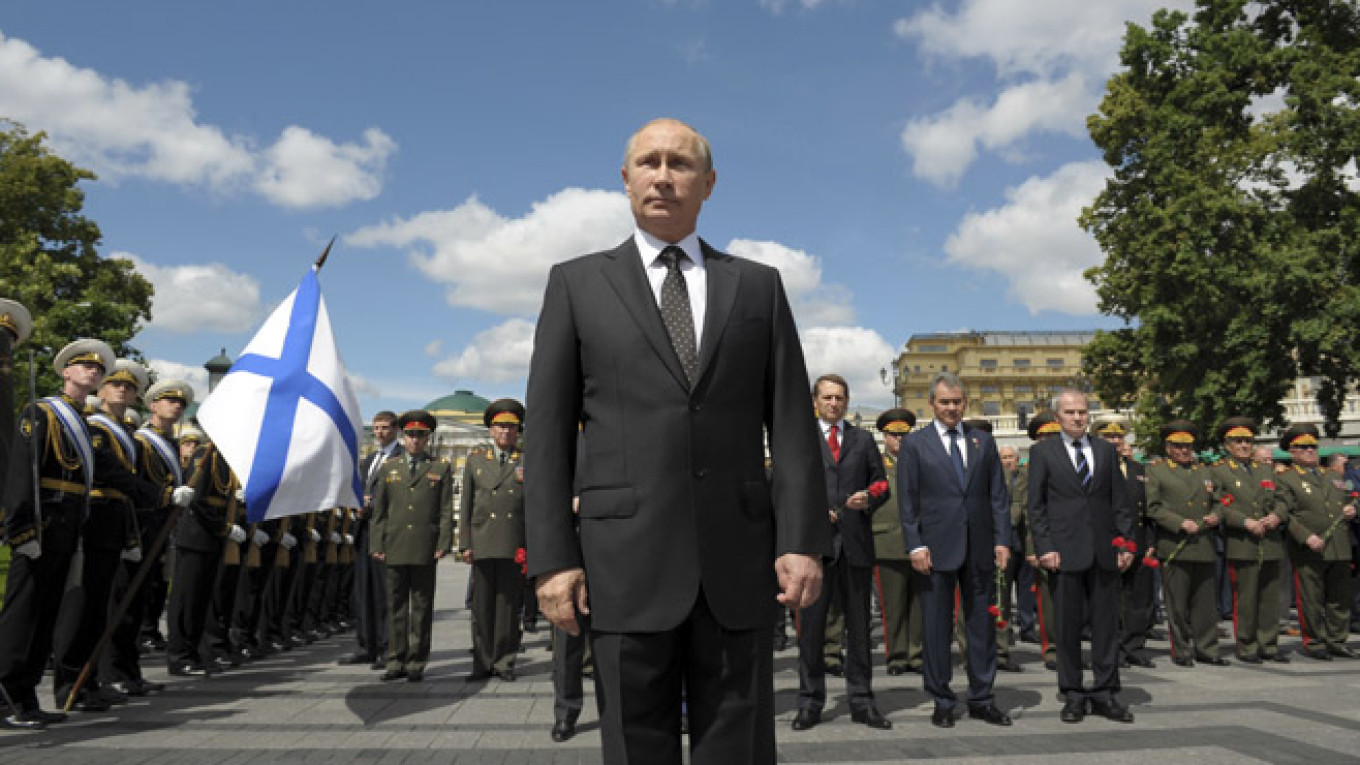The specter of Russian nationalism continues to haunt Europe and the U.S. Following Russia's annexation of Crimea, many in the West assumed that President Vladimir Putin's foreign policy was now driven by ethno-nationalist ideas, not state interests.
Nationalists since the 1990s have advocated defending Russians across Eurasia and "re-unifying" all formerly Russian lands. Crimea's annexation, Putin's new rhetoric, and possible links between the Kremlin and Russian nationalists fighting in Ukraine all seem to point to Putin's conversion to nationalism. But now that Ukrainian elections are over, this theory has been proven wrong. Russia de facto recognized Petro Poroshenko as Ukraine's president and is now engaged in negotiations with his government over a cease-fire in the east and payments for Kiev's gas bill.
The Kremlin has refused to recognize separatist entities in the eastern Ukraine, let alone annex them in the manner of Crimea, as separatists expected. Those who expected Putin to assemble the historic Russian lands are disappointed. Kiev now has the opportunity to reach an agreement with Moscow, although it is not at all clear if Poroshenko is ready to deliver on his promises to stop the military operation in the east. Violence continues and may escalate further.
Of course, proponents of the Russian nationalism theory may now insist that Putin only stopped his nationalist offensive for tactical reasons and may yet to resume it in a near future. They may also argue that the Kremlin was deterred by Western sanctions and diplomatic pressures.
In reality, though, Putin is not a nationalist. While appropriating key concepts from the nationalist vocabulary, he alternates them with ideas that nationalists may find objectionable.
His exploitation of the nationalist rhetoric was unmistakable in his speech on Crimea, which includes over 20 references to "Russki," rather than the more racially inclusive "Rossiiski." But at the Normandy celebrations Putin successfully reconnected with European leaders, partially recovering his status of a legitimate statesman and negotiations partner.
Putin remains noncommittal on the hardline nationalist agenda. By doing so he preserves the flexibility that he needs to preserve the power of the state, which his true priority. Putin's adaptability is made possible due to Russian nationalists' lack of organizational cohesiveness and domestic influence. The diverse and competing nationalist ideas of Eurasianism and Slavophile Orthodox empire remain poorly integrated and the two movements eye each other with suspicion.
The recently established Izborski club, for instance, to which the influential Eurasianist Alexander Dugin belongs, was created to bridge Eurasianist ideas with those of tsarist Russia, but ended up serving as another voice of neo-Soviet Eurasianism
Larger social factors also complicate the task of strengthening political influence of nationalism in Russia. Economic stagnation makes an important strata of elites and the public skeptical of isolation from the outside, particularly European, world. At the recent economic forum in St. Petersburg influential liberals Anatoly Chubais and Alexei Kudrin strongly argued against control on the flow of capital and for preserving Russia's openness to the world.
Putin will continue to exploit nationalism for his own objectives, but he will do so in response to American and European, rather than domestic, pressures. His regime seeks to maintain an equal distance from anti-Western nationalists and pro-Western liberals alike. Future crises in Russia's relations the West are likely, but the West will continue to bear an important responsibility for those.
Andrei Tsygankov is professor of international relations and political science at San Francisco State University. His forthcoming book is "The Strong State in Russia: Development and Crisis" (Oxford, 2014).
A Message from The Moscow Times:
Dear readers,
We are facing unprecedented challenges. Russia's Prosecutor General's Office has designated The Moscow Times as an "undesirable" organization, criminalizing our work and putting our staff at risk of prosecution. This follows our earlier unjust labeling as a "foreign agent."
These actions are direct attempts to silence independent journalism in Russia. The authorities claim our work "discredits the decisions of the Russian leadership." We see things differently: we strive to provide accurate, unbiased reporting on Russia.
We, the journalists of The Moscow Times, refuse to be silenced. But to continue our work, we need your help.
Your support, no matter how small, makes a world of difference. If you can, please support us monthly starting from just $2. It's quick to set up, and every contribution makes a significant impact.
By supporting The Moscow Times, you're defending open, independent journalism in the face of repression. Thank you for standing with us.
Remind me later.


